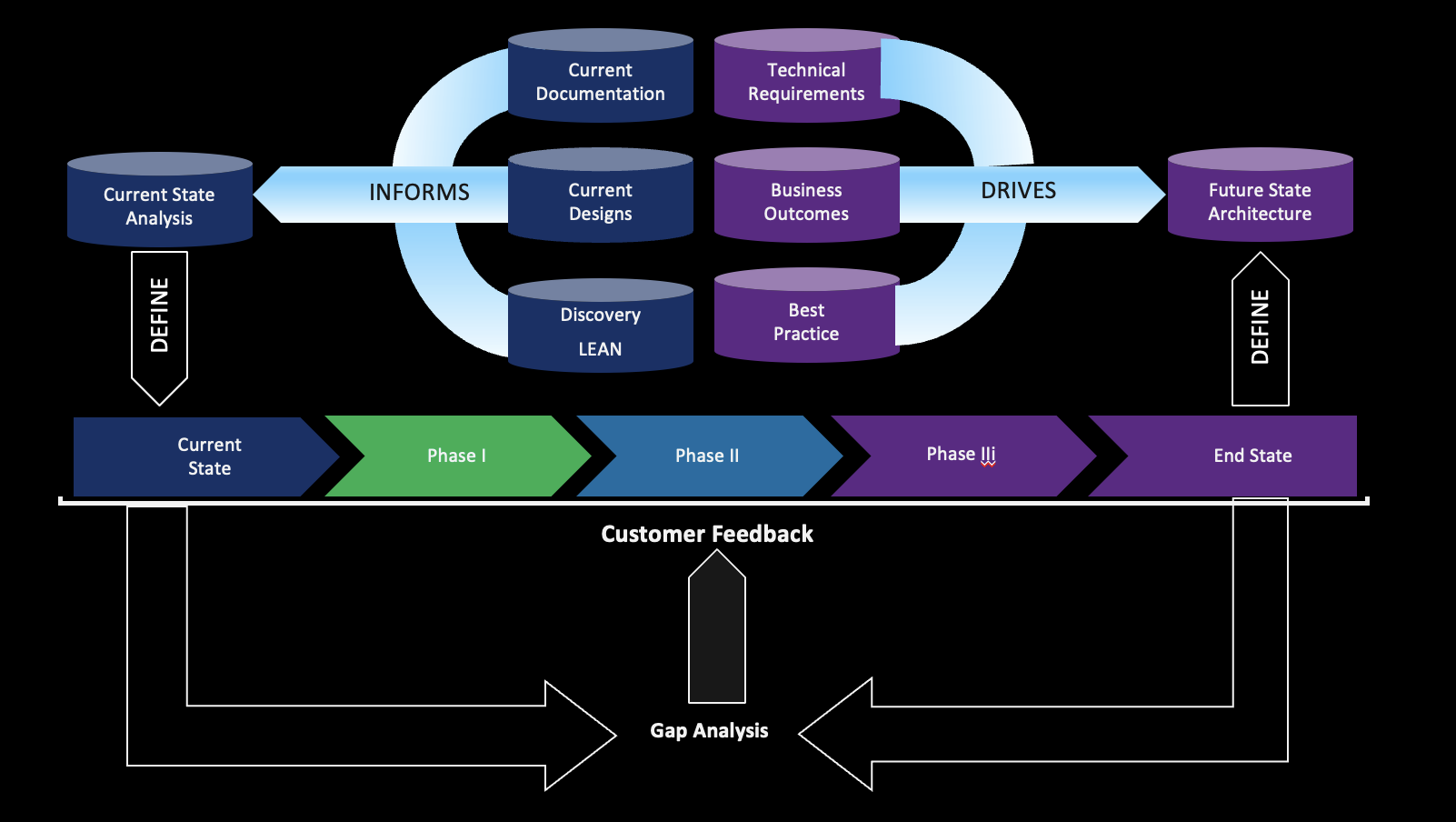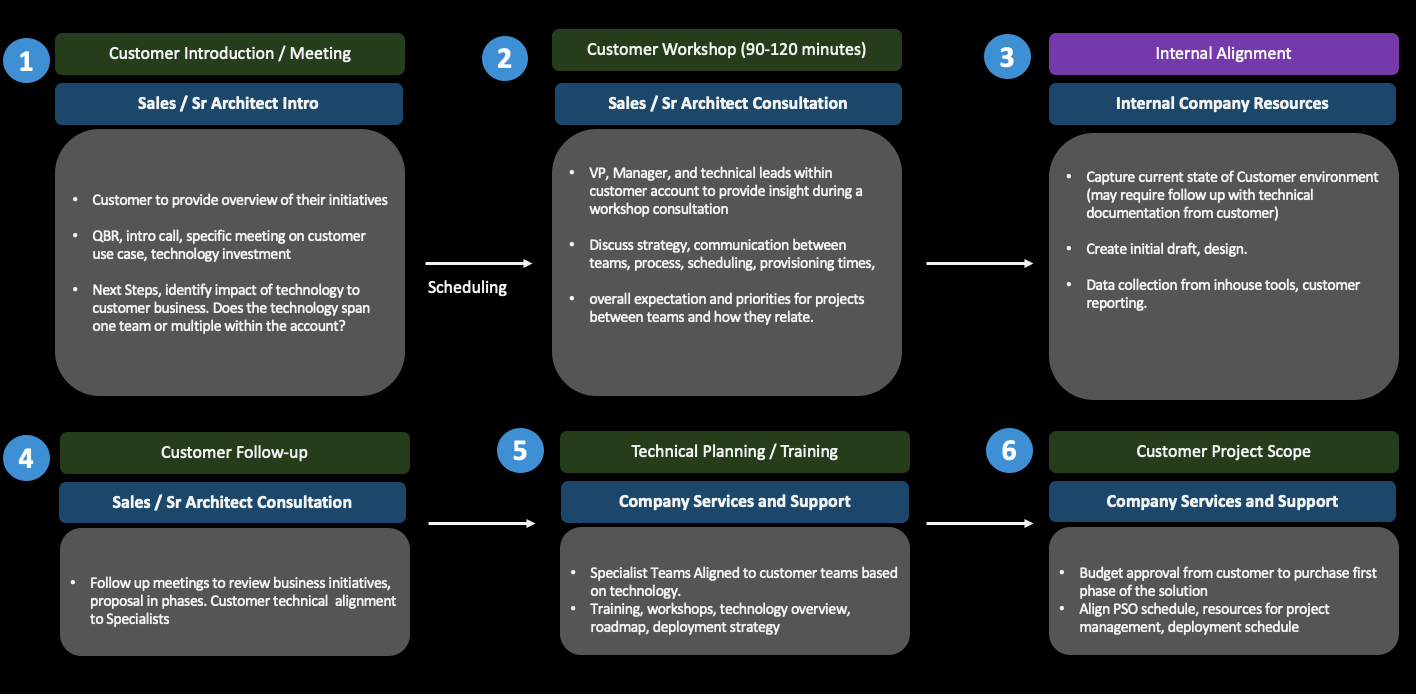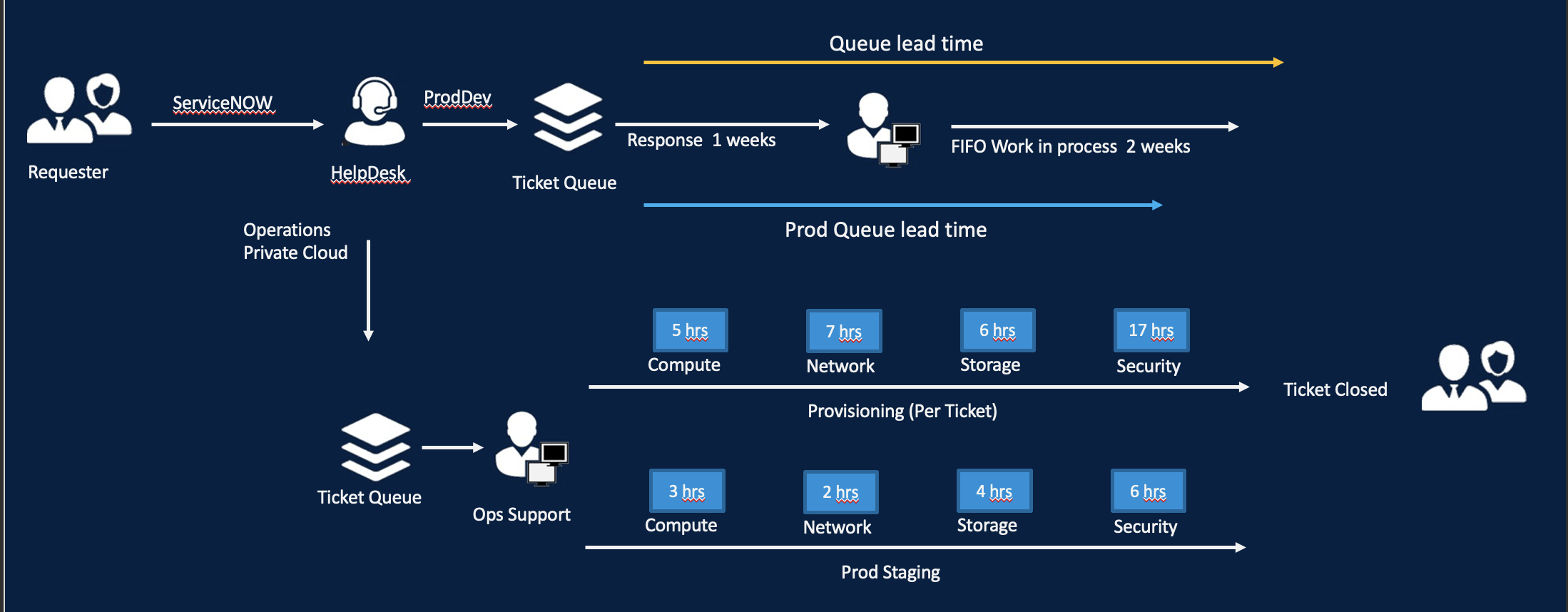
Future State Architecture
I created the FSA process to help drive a structured, consultative approach for
understanding customer business requirements, challenges, and dependencies. This approach ensures that
all key factors are addressed to deliver a successful solution that meets business requirements.
The flow is designed to align an organization's long-term business objectives to technology solutions and
services focusing on transforming the business rather than addressing a specific feature or technical need. While
it does not replace existing sales processes related to individual products, it provides a framework for customers
seeking comprehensive solutions that drive broader organizational benefits, impacting multiple teams and processes.
My FSA framework has been put into practice at a national and global level during my time at intel and VMware, leading to significant increase in both sales and services.
I spearheaded the development of the content structure and led a mentorship team to train field sales on the process and resource flow.

Team Alignment
As part of my leadership responsibilities, I focus on streamlining teams and processes to improve efficiency. The team alignent diagram is one example used to
assist with meeting flow, content creation, and solution delivery. By implementing this approach, it has reduced engagement time while enhancing the overall customer experience.
The result has been stronger company rapport and greater value delivered to clients.
I have used the team enablement diagram as a template to align resources and drive effective solutions. In a product sales motion, resources are typically well-defined,
making the enablement process relatively straightforward. However, with solution design that spans the entire business, the process can become much more complex. Priorities must be clearly
defined to address prerequisites and dependencies, ensuring that desired outcomes are met without unexpected delays or issues. As the project size grows, more teams are involved, and the flow
has been instrumental in mapping out a strategic process that eliminates duplication and overhead.
Leadership Experience

Workshops
I developed a structured enablement workshop process to take a strategic approach when engaging with customers and gaining a deeper understanding
of their business requirements. The workshop is designed as a 90- to 120-minute session that involves key participants, including stakeholders, developers, and operations teams.
This collaborative environment allows discussion involving the company’s workflow, challenges, and expectations, ensuring alignment and a clear path to achieving a successful outcome.
Below are examples of some of my workshop deliverables. Each engagement is tailored to meet the needs of each customer. While it requires a time commitment, the effort is well worth it.
The feedback and appreciation I receive highlights the value they place on the time and dedication I invest in understanding their business goals and expectations.
Workshop Examples

Team Building
Throughout my career, I’ve had the privilege of leading high-performing teams responsible
for supporting field sellers, engineers responsible for account ownership. This includes retaining top talent,
fostering a positive work environment, building the team's brand, and growth. One of the most rewarding aspects
of management has been the opportunity to collaborate with individuals from diverse backgrounds, sharing ideas
and strategies that enhance the company’s impact and value.

Agile Process
What truly impacts the outcome of a project or solution isn’t just the investment in technology, but how well teams collaborate. One key
insight uncovered during my enablement workshop is how teams function within an organization. This is why it's crucial to bring together multiple customer teams
in the same room to discuss challenges and goals. My perspective on a solution goes beyond specific technical features or team needs—it's about the broader
impact on the business. Using LEAN methodology, I’ve helped customers streamline processes through automation and the orchestration of software and hardware,
resulting in reduced project timelines and improved efficiencies
Below are a few slides that serve as a template for mapping internal company resources to sales motions to help field teams with enablement.
This approach helps streamline the customer engagement process, ensuring a positive and productive outcome, partiuclarly for new hires getting started with
conversations in their territory.





